CNC machining services forUSA
Buy durable, high-precision parts
Our CNC machining services, in USA , makes quality components for your demand.

DongGuan ChengYang is a leading provider of CNC machining services for Mississippi. With years of experience and a commitment to excellence, we offer precision machining solutions for a wide range of industries. Our state-of-the-art facilities and skilled technicians ensure that we can meet the needs of our clients with precision and efficiency.
Our CNC machining services for Mississippi are tailored to meet the specific requirements of each project. Whether you need prototyping, small batch production, or high volume manufacturing, we have the capabilities to deliver high-quality parts on time and within budget. Our team is dedicated to providing superior customer service and technical expertise to ensure that your project is a success.
At DongGuan ChengYang, we understand the importance of quality, precision, and reliability in the manufacturing process. That's why we are committed to delivering the highest standards of CNC machining services for Mississippi. Contact us today to learn more about how we can help you with your machining needs.
CNC Machining services
Dongguan Chengyang are equipped with 3-axis, 4-axis, and 5-axis CNC milling machines, permits us to skillfully handle parts ranging from straightforward to intricate.
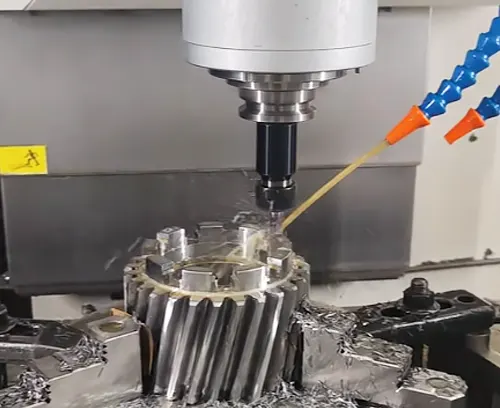
CNC Milling
CY operate advanced CNC milling machines, producing high-performance parts efficiently for our clients.
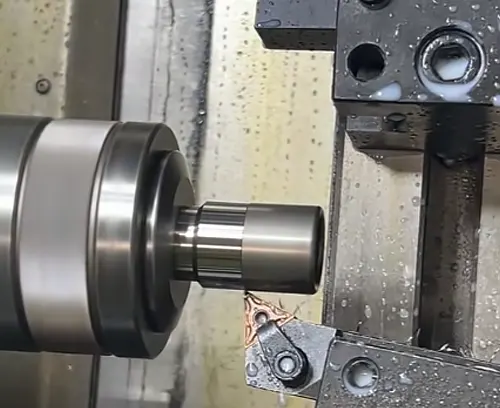
CNC Turnning
Our CNC lathes, turning centers, and mill-turn equipment enable us withhigh quality to construct a broad range of components for every client.
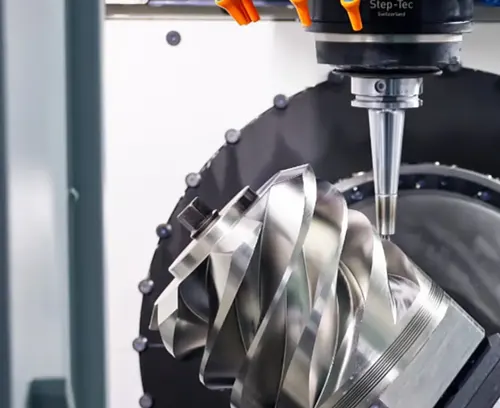
5 Axis CNC Milling
Offer 5-axis machining technology for detailed and highly accurate pieces. Featuring faster machining, it's perfect for elaborate designs.
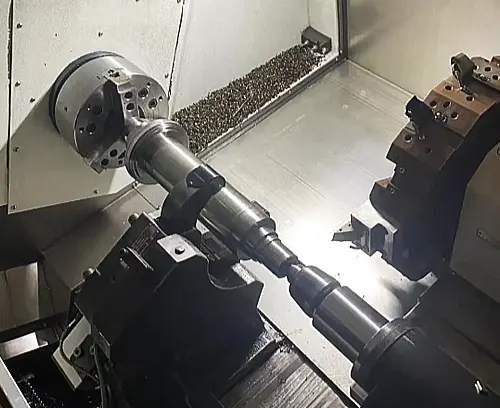
Precision Machining
Ensure precision-driven fabrication by combining several production phases to optimize output, reliability, and quicken production cycles, maintaining high standards in every batch.
Capabilities
Maximum Dimensions
2000mm x 1500mm x 800mm or 78.7 x 59 x 31.5 inches.
Maximum Dimensions
2000mm x 1500mm x 800mm or 78.7 x 59 x 31.5 inches.
Support Threading
Prefer Metric Threads, Also Support UNC and UNF threads.
Wall Thickness
Generally, a workable minimum wall thickness is 0.5mm for metals and 1.0mm for plastics.
Material Available
Metals: Aluminum, Copper, Brass, Bronze, Stainless Steel, Carbon Steel, Steel Alloy, Titanium, and plastic, etc .
Tolerances
Dimension: Depends on the size and material, generally +/- 0.01mm or 0.0004 inches
Common CNC DFM
DFM reduces production barriers by fine-tuning designs before they reach the factory floor.

Sharp Corner

Undercut

Undercut

Thick Walls

Tolerance Guide

Small Hole

Narrow Area
Metal Materials
We offer instant quotes for over 100 metals and help compare processing material costs.Instantly access quotes on over 100 types of metals and processing cost comparisons.
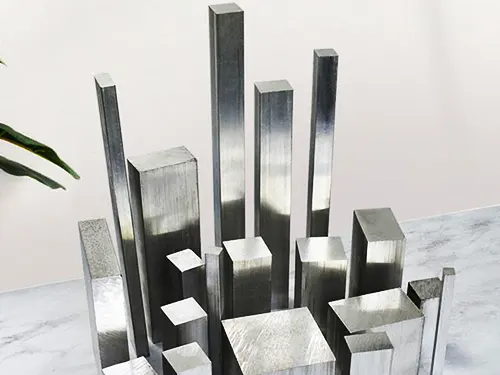
Aluminum
Aluminum is a popular choice for CNC machining due to its lightweight nature, excellent machinability, and corrosion resistance. It is widely used in various industries such as aerospace, automotive, and electronics. Some common types of aluminum materials used for CNC machining include 6061 aluminum, known for its good strength and weldability; 7075 aluminum, which is prized for its high strength-to-weight ratio; and 2024 aluminum, commonly employed in aerospace applications due to its high fatigue resistance. Other aluminum alloys like 5052 and 6063 are also frequently utilized in CNC machining for their unique properties that make them suitable for specific applications. Overall, aluminum is a versatile material that offers numerous benefits for CNC machining projects.
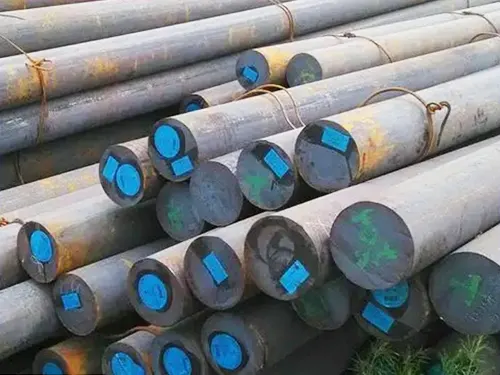
Carbon Steel
Carbon steel is a widely used material in CNC machining due to its strength, durability, and affordability. It is a type of steel that contains carbon as the main alloying element, typically ranging from 0.02% to 2.1%. Common types of carbon steel for CNC machining include AISI 1018, AISI 1045, and AISI 1095. AISI 1018 is a low carbon steel known for its excellent weldability and machinability. AISI 1045 is a medium carbon steel with good strength and impact properties, making it suitable for parts that require high strength. AISI 1095 is a high carbon steel that is known for its hardness and wear resistance, making it ideal for cutting tools and springs.
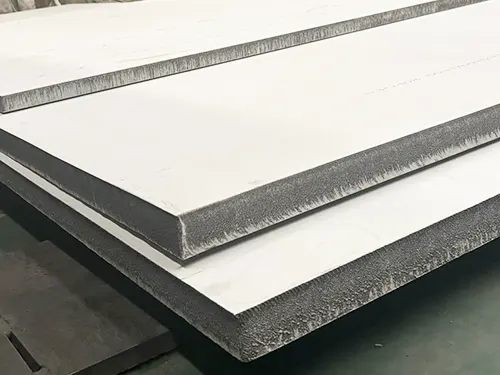
Stainless Steel
Stainless steel is a type of steel that contains a minimum of 10.5% chromium, which gives it its corrosion-resistant properties. It is commonly used in the CNC machining industry due to its durability, strength, and resistance to heat and chemicals. Some common types of stainless steel materials used in CNC machining include 303 stainless steel, which is easy to machine and has good corrosion resistance; 304 stainless steel, which is the most widely used stainless steel with good welding capabilities; 316 stainless steel, which is a higher grade with added molybdenum for increased corrosion resistance; and 17-4 stainless steel, which is known for its high strength and hardness. Stainless steel materials offer great versatility and are ideal for producing precision parts in various industries.
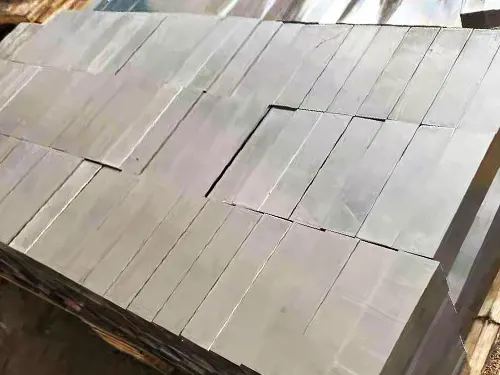
Tool Steel
Tool steel is a type of carbon and alloy steel that is specially designed to be used in the manufacturing of tools and dies. It is known for its high strength, hardness, wear resistance, and toughness, making it ideal for CNC machining applications. Some common types of tool steel used for CNC machining include D2 steel, A2 steel, O1 steel, M2 steel, and S7 steel. Each type of tool steel has its own unique properties and characteristics that make it suitable for specific machining applications. Whether you are looking for a material that can withstand high temperatures, resist abrasive wear, or provide excellent edge retention, there is a type of tool steel that can meet your machining needs.
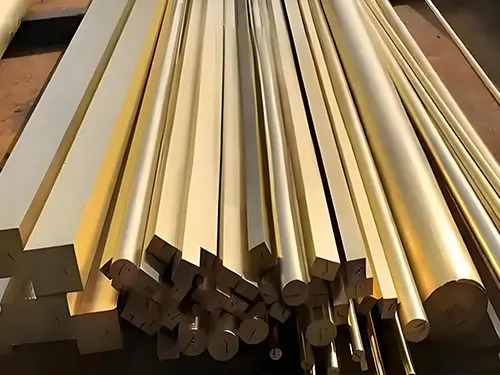
Brass
Brass is a versatile material commonly used in CNC machining due to its excellent machinability, corrosion resistance, and attractive appearance. It is an alloy composed primarily of copper and zinc, with small amounts of lead, tin, or other metals added for specific properties. Some common types of brass materials used in CNC machining include:
1. C36000 (Free Cutting Brass) – known for its high machinability and excellent corrosion resistance.
2. C46400 (Naval Brass) – contains a higher proportion of tin for improved resistance to seawater corrosion.
3. C26000 (Cartridge Brass) – suitable for intricate machining operations and applications requiring good formability.
4. C38500 (Architectural Bronze) – combines the properties of brass and bronze, making it ideal for decorative applications.
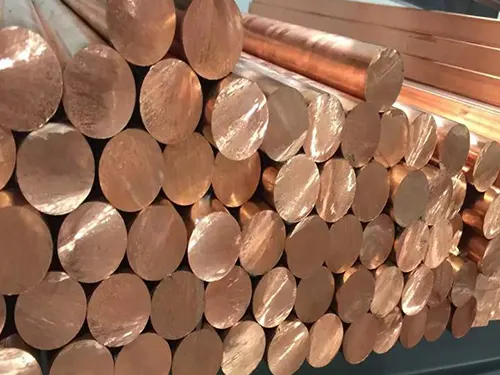
Copper
Cooper is a popular material used in CNC machining due to its excellent thermal conductivity, corrosion resistance, and malleability properties. It is commonly used in manufacturing components for various industries including electronics, automotive, and aerospace. Some of the common types of materials used in CNC machining with Cooper are brass, bronze, and copper alloys. Brass, a combination of copper and zinc, is known for its low friction and excellent electrical conductivity. Bronze, a mixture of copper and tin, is chosen for its strength and wear resistance. Copper alloys, such as beryllium copper, offer high strength and conductivity, making them suitable for applications requiring precise electrical components. Overall, Cooper is a versatile material that plays a crucial role in CNC machining.
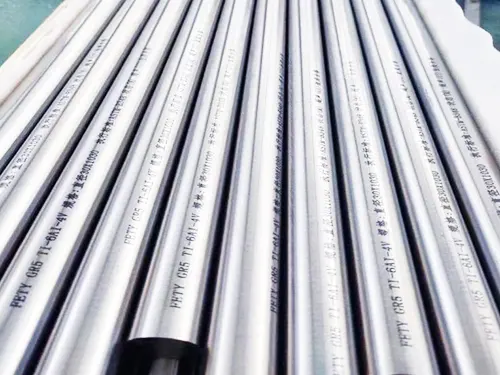
Titanium
Titanium is a popular choice for CNC machining due to its excellent strength-to-weight ratio, corrosion resistance, and biocompatibility. It is commonly used in aerospace, automotive, medical, and other high-performance industries. Some common types of titanium materials used for CNC machining include Grade 2 titanium, known for its excellent weldability and formability; Grade 5 titanium, a titanium alloy with high strength and heat resistance; and Grade 7 titanium, with added palladium for increased corrosion resistance. These materials offer a wide range of mechanical properties and are versatile for various machining applications, making them a go-to choice for manufacturers looking for durability and precision in their parts.
Plastic Materials
We offer instant quotes for over 200 plastics and help compare processing material costs.
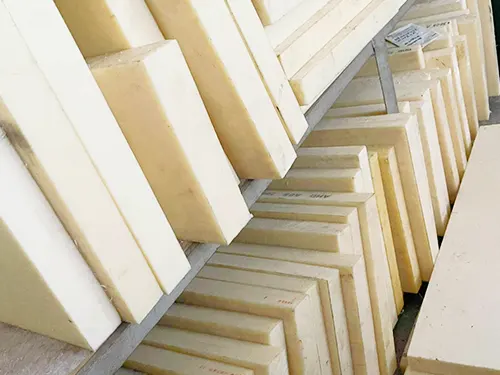
ABS
ABS, or Acrylonitrile Butadiene Styrene, is a commonly used thermoplastic material in CNC machining. It is known for its durability, impact resistance, and high strength-to-weight ratio. One of the main advantages of ABS is its versatility in different applications, as it can be easily machined, drilled, or tapped. Additionally, it is relatively affordable compared to other engineering plastics. However, ABS has its disadvantages as well. It is prone to warping and shrinkage during cooling, which can affect the accuracy of the final product. It also emits toxic fumes when heated, requiring proper ventilation in the machining environment. Despite these drawbacks, ABS remains a popular choice for CNC machining due to its overall performance and cost-effectiveness in various industries.
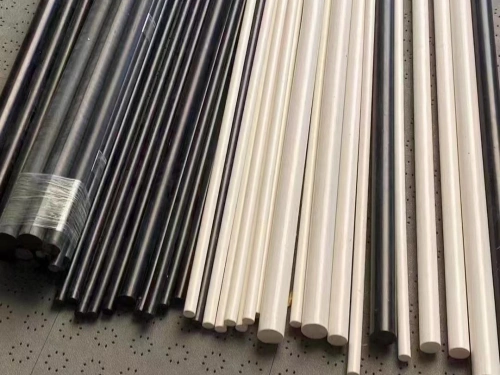
PMMA
PMMA, or polymethyl methacrylate, is a type of thermoplastic that is commonly used in CNC machining due to its ease of machining and excellent optical properties. Its advantages include high transparency, good weatherability, and resistance to breakage. PMMA is also lightweight and has good impact strength. However, one major disadvantage of PMMA is its relatively low heat deflection temperature, which can limit its use in high-temperature applications. PMMA can also be prone to scratching and may require special handling techniques to prevent damage. Overall, PMMA is a versatile material for CNC machining, but its limitations should be taken into consideration when selecting it for a specific application.
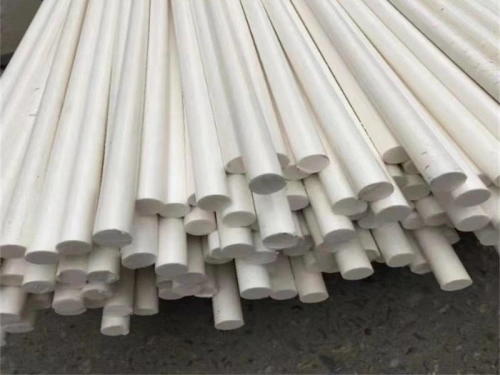
PE
PE, or material removal rate, in CNC machining refers to the amount of material that a cutting tool can remove per unit of time. The advantage of a high PE is that it increases productivity, allowing parts to be manufactured faster. This is especially beneficial in high-volume production settings where efficiency is crucial. However, a high PE can result in increased tool wear and shorter tool life, leading to higher maintenance costs. It can also generate a lot of heat, which can affect the quality of the finished part. It is important for machinists to find a balance between a high PE and maintaining the quality of the parts being produced to ensure optimal results.
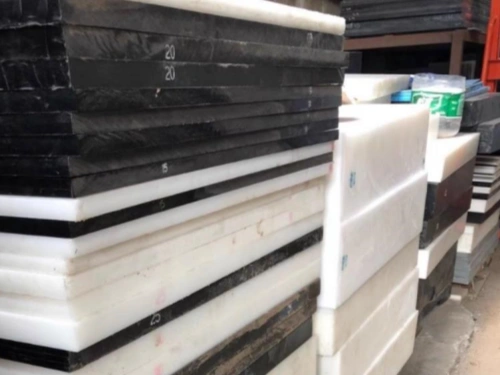
Nylon
Nylon is a commonly used material in CNC machining due to its versatility and durability. Its advantages include high strength-to-weight ratio, excellent wear resistance, and good chemical resistance. Additionally, nylon is easy to machine, making it a cost-effective choice for a wide range of applications. However, nylon does have some disadvantages to consider. It can absorb moisture, which may affect its dimensional stability and mechanical properties. Nylon also has a tendency to build up static electricity, which can be a concern in certain environments. Despite these drawbacks, nylon remains a popular choice in CNC machining for its overall performance and ease of use.
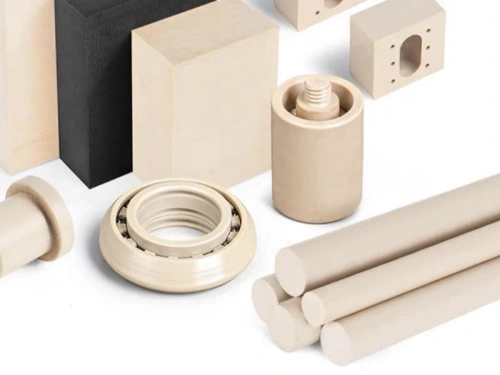
PEEK
PEEK, or polyetheretherketone, is a high-performance polymer often used in CNC machining due to its excellent mechanical properties. It offers high temperature resistance, chemical resistance, and excellent mechanical strength, making it a popular choice for aerospace, medical, and automotive industries. One of the main advantages of PEEK for CNC machining is its ability to maintain dimensional stability even in harsh environments. However, its high cost compared to other materials can be a disadvantage for some manufacturers. Additionally, its high melting point can make it challenging to machine, requiring specialized equipment and expertise. Despite these drawbacks, the unique combination of properties offered by PEEK makes it a valuable material for precision machining applications.
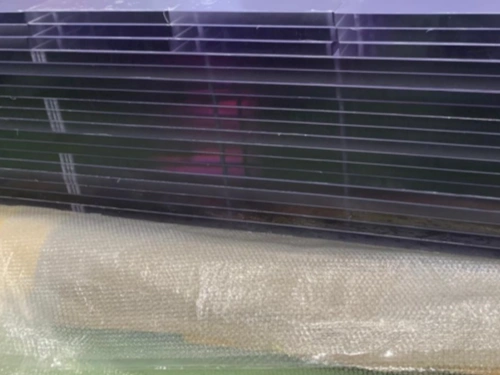
PC
PC for CNC machining refers to the personal computer system that is used to control the CNC (Computer Numerical Control) machine during the manufacturing process. One of the main advantages of using a PC for CNC machining is its ability to provide precise and complex instructions to the CNC machine, resulting in accurate and efficient production. PC software also allows for easy programming and editing of designs, making it a versatile tool for producing a wide range of products. However, one disadvantage of using a PC for CNC machining is the potential for system crashes or software malfunctions, which can lead to costly production delays. Additionally, PCs may require regular maintenance and updates to ensure they are running smoothly.
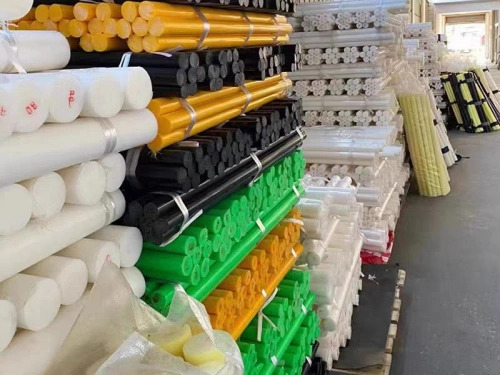
PP
PP (Polypropylene) is a commonly used material in CNC machining due to its affordability, versatility, and ease of machining. One of the main advantages of using PP for CNC machining is its excellent chemical resistance, making it suitable for applications requiring contact with various chemicals. Additionally, PP has a high strength-to-weight ratio, making it a durable option for producing lightweight components. However, one of the disadvantages of PP is its low heat resistance, limiting its use in high temperature applications. Furthermore, PP can be prone to warping during machining due to its low thermal conductivity. Overall, while PP offers many advantages for CNC machining, it is important to consider its limitations when selecting the material for a project.
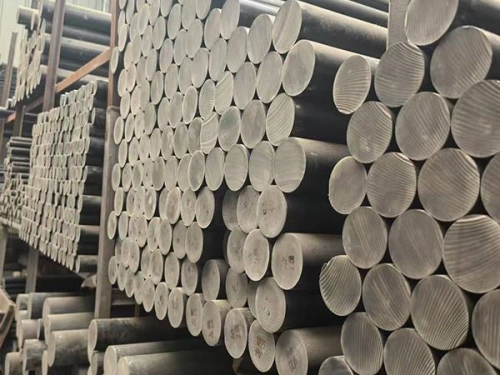
PET
PET, or Polyethylene Terephthalate, is a common material used in CNC machining due to its excellent mechanical properties, such as high strength and stiffness. One of the main advantages of PET for CNC machining is its good resistance to chemical and environmental factors, making it suitable for a variety of applications. Additionally, PET is easy to machine and can be processed quickly, resulting in cost-effective production. However, PET can be prone to warping during machining, especially in thin-walled parts, which can affect the accuracy of the final product. It is important to consider these limitations when choosing PET for CNC machining projects to ensure the desired outcome.
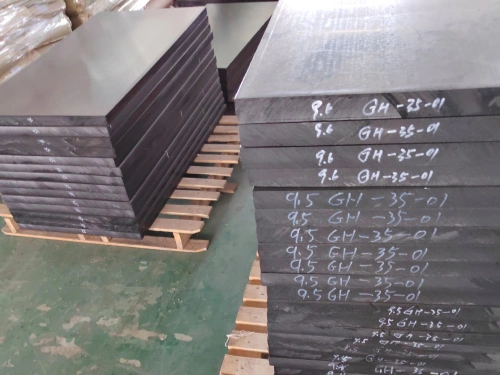
POM
POM, or Program Optimization Mode, is a feature in CNC machining that allows users to optimize the machining program in order to reduce cycle time and improve overall efficiency. The main advantage of POM is that it can help save time and increase productivity by streamlining the machining process. By identifying and eliminating unnecessary movements or operations, POM can significantly improve the overall performance of the CNC machine. However, a potential disadvantage of using POM is that it may require additional training for operators to fully utilize its capabilities. Additionally, there is a risk of inadvertently impacting the quality of the finished product if the program is not optimized correctly. Overall, POM can be a valuable tool for enhancing productivity in CNC machining, but it requires careful implementation to avoid any potential drawbacks.
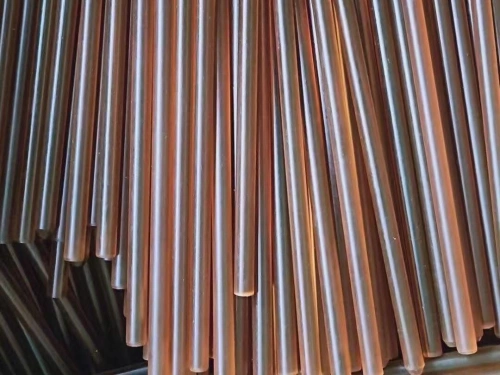
PVC
PVC, which stands for Polyvinyl Chloride, is a popular choice for CNC machining due to its versatility and affordability. This thermoplastic material is known for its excellent chemical and weather resistance, making it suitable for a wide range of industrial applications. One of the main advantages of PVC for CNC machining is its ease of machining and low maintenance requirements. PVC also offers good dimensional stability and can be easily welded or bonded. However, one of the disadvantages of PVC is its relatively low strength compared to other engineering plastics, making it less suitable for high-load applications. PVC is also known to release toxic gases when burned, so proper ventilation is necessary when machining this material.
Surface Finishes
Let our experienced surface treatment specialists enhance the quality and appearance of your product.
| Name | Description | Materials | Color | Texture | More |
|---|---|---|---|---|---|
| Brushing | Brushing is the act of cleaning teeth and gums with a toothbrush to remove plaque and prevent tooth decay. It is essential for maintaining good oral hygiene and overall health. |
Aluminum, Brass, Stainless Steel, Steel, ABS,etc | N/A | Satin | |
| Sand Blast | Sandblasting is a method used to clean or etch surfaces by propelling fine particles at high speeds. This abrasive cleaning process is commonly used in industries like construction, automotive, and restoration. |
All Metal Materials, Plastic | N/A | Matte | |
| Tumbling | Tumbling is a form of gymnastics that involves acrobatic movements like flips, somersaults, and twists. It requires strength, flexibility, and coordination. Tumblers often perform routines on a mat or a spring floor. |
All Materials | N/A | Smooth, Matte | |
| Polishing | Polishing is the process of smoothing a surface to improve its appearance or functionality. It involves removing imperfections and enhancing shine through friction or chemical means, resulting in a refined finish. |
All Materials | N/A | Smooth | |
| Anodizing | Anodizing is an electrolytic process that forms a protective oxide layer on metal surfaces, typically aluminum. This layer enhances corrosion resistance, durability, and allows for colored finishes to be applied. |
Aluminum, Titanium | Clear, Yellow, Green, Blue, Black, etc |
Smooth, matte finish. | |
| Painting | Painting is a visual art form where pigments are applied to a surface, creating images, expressions, and emotions. It is a means of artistic expression that has been practiced for centuries. |
All Materials | Clear, Yellow, Green, Blue, Black, Multiple | Gloss, semi-gloss, flat, metallic, textured | |
| Black Oxide | Black oxide is a chemical treatment used to create a dark, matte black finish on metals. It provides corrosion resistance and improves the overall appearance of the metal surface. It is commonly used in industries such as automotive, aerospace, and firearms for its aesthetic and protective qualities. |
Steel, Stainless Steel | Black | Smooth, matte | |
| Electroplating | Electroplating is a process that involves using an electric current to coat a metal object with a thin layer of another metal. This is done for various reasons, such as improving the appearance, corrosion resistance, or durability of the object. |
Aluminum, Steel, Stainless Steel | Gold, Silver, Nickel, Copper, Brass, Zinc, Chrome | Smooth, glossy finish | |
| Powder Coating | Powder coating is a method of applying a dry powder to a surface and then heating it to create a durable, protective finish. It is often used on metal objects to provide a high-quality, long-lasting coating that resists chipping, scratching, and fading. |
Aluminum, Stainless Steel, Steel,etc | Custom | Gloss, matte or semi-gloss | |
| Alodine | Alodine is a chemical conversion coating used on aluminum and other metals to increase corrosion resistance and improve paint adhesion. It creates a thin, protective film that enhances the overall durability of the metal surface. |
Aluminum, Stainess Steel | Clear, Gold | As machined | |
| Passivation | Passivation is a chemical process that enhances the corrosion resistance of stainless steel by forming a protective outer layer. This layer helps to prevent rust and other forms of deterioration in various industrial applications. |
Stainess Steel | N/A | Matte | |
| Electroless Plating | Electroless plating is a process of depositing a thin layer of metal onto a surface without the use of an external electrical current. This method provides uniform coatings and excellent corrosion resistance. |
Metal, Plastic | Gold, Silver, Nickel, Copper, Brass, Zinc, Chrome | Smooth, glossy finish |
Gallery Parts
CNC machining services Locations Near Mississippi, USA
We offer expert surface treatment, delivered by knowledgeable and experienced specialists.
FAQ
Here, some of the most common questions about CNC machining services for Mississippi, USA. ” free to contact us if you have any question.”
Introduction
Welcome to our FAQ guide about CNC machining services for Mississippi in the USA. If you’re looking for information about CNC machining services in Mississippi, you’ve come to the right place. Below you’ll find answers to some common questions related to CNC machining services in Mississippi.
Q: What are CNC machining services?
A: CNC machining services involve the use of computer-controlled machine tools to create precision parts and components.
Q: What industries benefit from CNC machining services in Mississippi?
A: Industries such as aerospace, automotive, medical, and electronics can benefit from CNC machining services in Mississippi.
Q: What materials can be used in CNC machining services in Mississippi?
A: Materials such as aluminum, steel, titanium, and plastics can be used in CNC machining services in Mississippi.
Q: Are CNC machining services in Mississippi cost-effective?
A: Yes, CNC machining services in Mississippi are cost-effective due to automation and precision, which reduce material waste and labor costs.
Q: How can I find a reliable CNC machining service provider in Mississippi?
A: Look for a CNC machining service provider in Mississippi with a proven track record, experience, and a commitment to quality and customer satisfaction.
Q: What is the typical turnaround time for CNC machining services in Mississippi?
A: The turnaround time for CNC machining services in Mississippi depends on the complexity of the project and the workload of the service provider.
Q: Can CNC machining services in Mississippi handle custom projects?
A: Yes, CNC machining services in Mississippi can handle custom projects based on your specific requirements and designs.
Q: What are the advantages of using CNC machining services in Mississippi?
A: The advantages of using CNC machining services in Mississippi include high precision, versatility, and efficiency in producing complex parts and components.
Q: Are CNC machining services in Mississippi environmentally friendly?
A: Yes, CNC machining services in Mississippi are environmentally friendly as they produce less waste and consume less energy compared to traditional manufacturing methods.
Q: How can I request a quote for CNC machining services in Mississippi?
A: You can request a quote for CNC machining services in Mississippi by contacting a service provider directly and providing details about your project requirements.
Conclusion
We hope this FAQ guide has provided you with valuable information about CNC machining services in Mississippi. If you have any further questions or need assistance, feel free to reach out to a CNC machining service provider in Mississippi for personalized support.
